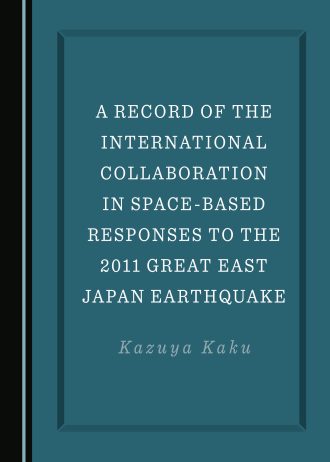Islamic Republic of Iran’s Foreign Policy in the South Caucasus
This book delves into Iran’s political, economic, and strategic relations with the southern Caucasus after the 1979 revolution. It examines Iran’s foreign policy, the legal framework of the Caspian Sea, and the strategic implications of the 2020 Nagorno-Karabakh conflict.
Catalytic Strategies for Conscious Social Transformation
This collection of essays examines complex global challenges and advocates for fundamental change. It advances new thinking on human security, human-centered economics, and human rights, proposing integrated knowledge to bridge the divide between theory and social reality.
Jehovah’s Witnesses in Europe
The religious association of Jehovah’s Witnesses has existed for about 150 years in Europe. This volume investigates the effect of the differing circumstances in these various national societies on these religious societies, and the challenges they had to overcome.
Connecting Contemporary African-Asian Peacemaking and Nonviolence
This book brings together accomplished and emerging scholars to draw strategic lines of connection between diverse peoples in Africa and Asia, the two most populous continents. Each essay here reviews recent attempts at peace-building in these regions.
Anatomy of a Terrorist Organisation
Leading experts examine the Kurdistan Workers’ Party (PKK), tracing its evolution from a Cold War entity to a global network. This book analyzes the PKK’s ideology, propaganda, and operational dynamics, and its profound impact on regional geopolitics and global security.
This collection of essays explores Nigeria’s security challenges since colonial times. It examines their historical roots, why they have escalated, the effectiveness of strategies employed to address them, and the lessons to be learnt from how security matters have been handled.
The Emergence and Scope of the Voice of Government
When government agencies communicate with us, are we getting self-serving propaganda or helpful information? This book examines the intersection of bureaucracy and propaganda, from wartime PR to presidential case studies and the pop culture image of government spokespersons.
This book sheds light on the history of Karabakh, an integral part of Azerbaijan, through archival documents. It covers the final Soviet years and the post-Cold War era, with a special focus on the history and architecture of Shusha, Karabakh’s cultural heart.
This collection explores creativity and the arts as vital to social movements and change. Leading academics and practitioners investigate how creative activism is deployed, taught, and critically analysed, defining the key parameters of this emerging field.
Discover how America weaponized avant-garde art as propaganda against Nazi and Soviet threats. Art became ammunition and the canvas a battlefield in the epic ideological struggle between individualism and collectivism.
The Nexus between Poverty and Corruption
This book analyses the complex corruption that undermines democracy, development, and human rights in Africa, with profound consequences for the poor. As there is no blueprint solution, it proposes a holistic, multi-pronged approach to the corruption and poverty epidemic.
Liberal democracy has enriched lives, but it is under threat from totalitarian regimes and ideological extremes. This book argues that its defence against rising authoritarianism is the great moral imperative of our time, combining legal analysis, history, and philosophy.
This book argues that the rule of law does not stand alone; ethics and integrity are the lifeblood of all legal and governance systems. It explores how to overcome deficiencies in our legal systems and demonstrates how this approach can lead to more effective governance.
The European Union and the New Perfect Storm
The European crisis is a “perfect storm” affecting all levels of our lives. But what is old, and what is new in the EU today? This volume demonstrates that old issues remain unsolved, new challenges have emerged, and the crisis is no longer a short moment, but a permanence.
This book examines the tension between democratic governance and the aspirations of a developmental state in Nigeria’s Fourth Republic. It unveils the contradictions where democratic ideals clash with the realities of economic progress, highlighting the challenges Nigeria faces.
This book collects the essential writings of the world’s great revolutionary thinkers. Committed to liberty, equality, and fraternity, they struggled for a better world. By studying their ideas, we can develop new visions for a world based on human freedom.
This book records the international support for Japan during the 2011 Great East Japan Earthquake. When the disaster struck, 27 satellites from 14 countries collaborated to observe the area, proving that international space-based response can effectively support relief efforts.
Challenging traditional theories, this book views institutions not as static constructs but as dynamic, adaptive systems. It introduces path emergence theory to show how small, decentralized actions can ripple through societies, fostering global and regional change.
While China’s engagement across Africa has grown, there has been a dearth of attention on its relationship with Eritrea. Based on field research and robust data, this book fills that gap, providing a clear-eyed, comprehensive examination of China-Eritrea relations.




















